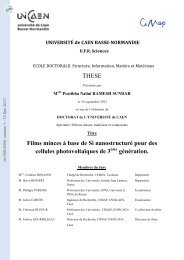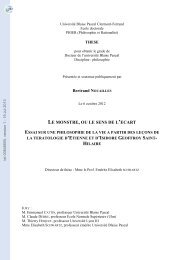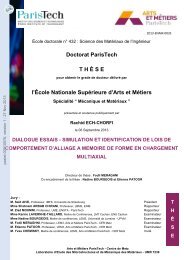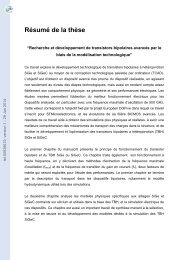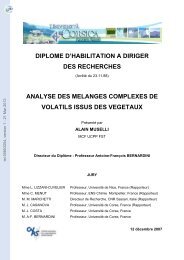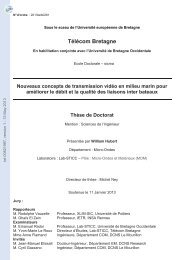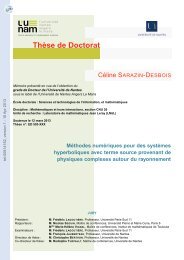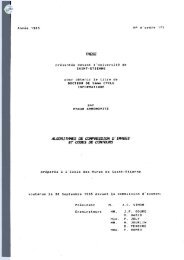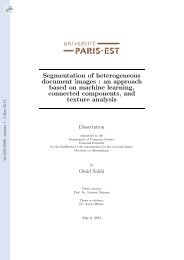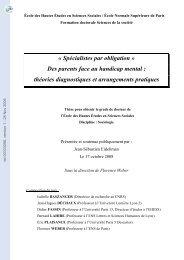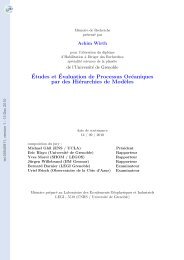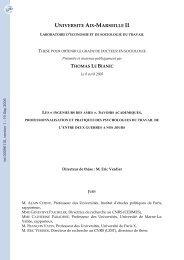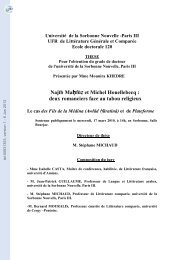Techniques d'observation spectroscopique d'astéroïdes
Techniques d'observation spectroscopique d'astéroïdes
Techniques d'observation spectroscopique d'astéroïdes
Create successful ePaper yourself
Turn your PDF publications into a flip-book with our unique Google optimized e-Paper software.
68 CHAPTER 4. SPECTRAL ANALYSIS TECHNIQUES<br />
tel-00785991, version 1 - 7 Feb 2013<br />
Figure 4.1: Bus-DeMeo taxonomy key figures. Source :http://smass.mit.edu/busdemeoclass.<br />
html<br />
1987, Birlan et al., 1996a]. One of the advantages of this method is that even if only a subset<br />
of variables is available for an object (only part of the spectrum), a preliminary classification<br />
can still be achieved.<br />
4.1.2 Spectral comparison - Comparative planetology<br />
Spectroscopy of different samples performed in the laboratory provides the basis upon which<br />
compositional information about unexplored planetary surfaces can be understood from remotely<br />
obtained reflectance spectra. Thus, confronting the spectral data derived from telescopic<br />
observations with laboratory measurements is an important step in study of asteroid physical<br />
properties [Britt et al., 1992, Vernazza et al., 2007, Popescu et al., 2011].<br />
Among the laboratory samples, meteorites can provide the most fruitful results for understanding<br />
asteroid composition. This is owed to the fact that, prior to their arrival meteorites are<br />
themselves small bodies of the solar system. Thus, spectral comparison represents a direct link<br />
for understanding of asteroid-meteorite relationships.<br />
The traditional classification is based upon their appearance [de Pater & Lissauer, 2010]:<br />
• metal meteorites are referred as iron meteorites. They are made primary of iron and nickel<br />
and smaller amounts of siderophile elements (elements which easily combine with molten<br />
iron);



